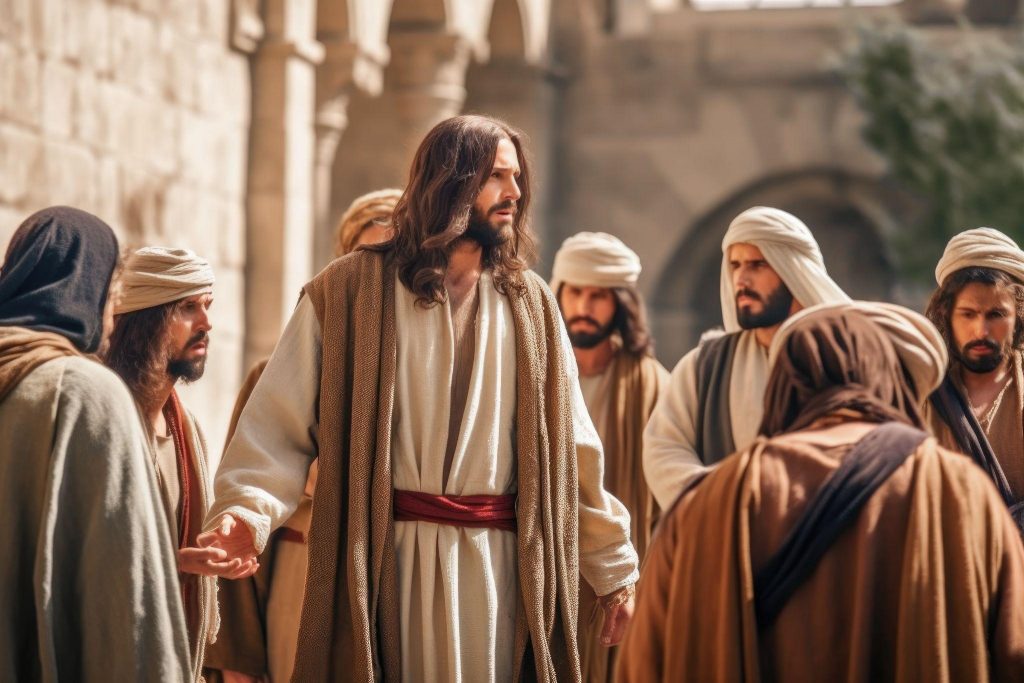THE WORLD’S #1 EXECUTIVE COACHING AND BUSINESS COACHING BLOG SINCE 2017.
The Disciple Leader: Balancing Loyalty and Independence for Effective Leadership
October 5, 2023 | Category: Blog, Intelligent Leadership | Last updated on: March 12, 2025
Disciple leaders appreciate guidance from a higher authority. Mature Disciples are great at building high-performing, focused teams. The fundamental leadership challenge of Disciples is to reconcile their need for guidance with their authority as leaders. Leadership coaching can help Disciples achieve higher levels of leadership maturity and efficacy.
“Only a disciple can make a disciple.” – Aiden Wilson Tozer.
A disciple is a person committed to learning from a mentor or guide. In the context of leadership coaching, disciples look to an authority figure to guide their decisions. Contrary to appearances, leadership and discipleship are not mutually exclusive, and one does not have to overrule the other.

Disciples can be leaders and vice-versa.
A mature Disciple leader has a strong sense of loyalty. Disciples understand that loyalty directed downward is as valuable as loyalty to a higher authority or cause. Disciples find it easy to engage their reports. Their trustworthiness and predictability make it easy for their employees to open up to them.
Reactivity is perhaps the greatest weakness of Disciples. At least, it is the source of most of the weaknesses of the Disciple leader.
Reactive leaders tend to reverse their positions at a whim. The unpredictability makes them seem unstable and unworthy of trust.
Characteristics of Disciple Leaders
Disciple leaders appreciate guidance to the point that they may become dependent on it. The higher source of guidance upon which they predicate their leadership may be a belief system, an institution, or an authority figure.
Without guidance, derailing Disciples lose direction and may panic. As a result, they may reverse their positions on various issues often and give the impression of uninformed, incompetent people struggling to impose authority.
Disciple leaders’ inability to make consistent decisions stems from a fundamental, deep-seated insecurity. Immature Disciples cannot reconcile the concept of a guiding force with their leadership position. Feeling inferior to the force or entity that guides them can cause immature Disciples to derail further.
This duality defines the fundamental leadership challenges of Disciples.
The Two Sides of Disciple Leaders
To function optimally, Disciples must sort out a fundamental internal conflict. Their desire for guidance collides with their ideas of what a leader should be, resulting in feelings of inferiority and resentment.
When they feel they make optimal leadership decisions, Disciples can be kind and understanding. When feelings of inferiority frustrate them and call into question their ability to lead, they lash out, becoming viciously unsympathetic.
Immature leaders who cannot control their feelings go from one state to another quickly and without warning, upsetting and confusing those around them.
The leadership challenge Disciples face is to achieve enough maturity to understand and control their emotions and reconcile the two competing moods within them. Maturity enables Disciples to reap the full benefits of their leadership style.
The Disciple Leadership Style
Disciples may not think they have the right leadership traits and tend to not seek leadership positions. Leaders unable to overcome and settle their fundamental internal conflicts may appear indecisive, unassertive, and even incompetent to those around them.
However, when Disciples gain control of their feelings and emotions through self-reflection and self-awareness, they become effective leaders capable of engaging and rallying the troops.
Disciples need security and cherish certainty. These leadership needs drive them to become excellent planners and structure providers for systems and processes.
The sense of security that results from Disciples’ careful planning and measures trickles down to their employees.
Mature Disciples are great at keeping their eyes on the proverbial prize and avoiding being sidetracked. What’s more, they can help their employees develop focus and improve their effectiveness.
To achieve effective leadership, executive coaching specialists can help Disciples improve their self-awareness and strengthen their positive traits.
Tips for Strengthening the Disciple Trait
Coaching can help Disciples develop into capable leaders.
Accepting guidance and worshiping authority are not two sides of the same coin. Derailing Disciples tend to go from the former to the latter over time, sabotaging their leadership. Mature Disciples understand that worshiping authority isn’t just unhealthy. It is counterproductive as well.
Here are some other measures Disciples can take to strengthen their positive leadership traits:
- Assuming responsibility. Strong leaders take responsibility for their decisions and sometimes even the mistakes of their reports.
- Altering perspectives. Immature Disciples may fall into patterns of negative thinking about their setbacks. By developing the habit of looking at things from a different angle, they can train themselves to adopt more mature attitudes toward failures.
- Pitting trust against uncertainty. Uncertainties often get in the way of Disciple leaders building effective, meaningful relationships. By learning to trust people more, Disciples can overcome this hurdle.
- Recognizing the need for clarity in interactions. Good leaders are good communicators. Yet Disciples often give mixed signals to their interlocutors. Consistency in interactions can bridge this leadership shortcoming.
- Minimizing negativity. Disciples tend to ruin others’ day when they have a bad one. By resisting the tendency to complain, Disciples can limit the contagion of negativity throughout their organizations.
Disciples may not think of themselves as “classic leadership material.” However, their leadership efficacy is only a question of maturity.
They can be easy-going and accommodating. They can build strong, effective teams and streamline systems and processes. And executive coaching can help them get there.



